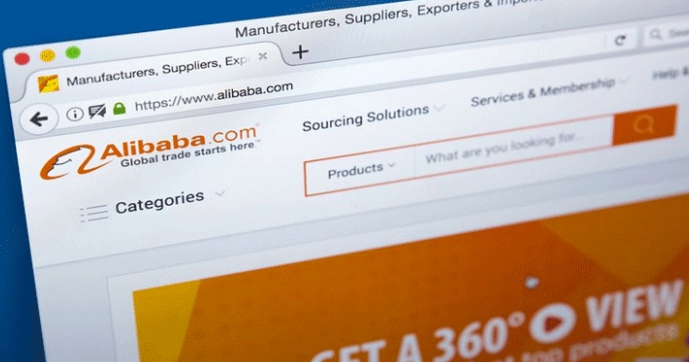
Understanding the Alibaba Ecosystem: More Than Just an E-Commerce Platform
When you first explore Alibaba, you‘re not just looking at another online marketplace—you‘re stepping into a complex global trading universe that connects manufacturers, suppliers, and buyers across continents. As a web scraping expert who has navigated these intricate digital landscapes for years, I‘m excited to share insights that will transform how you approach data extraction from this powerful platform.
Alibaba isn‘t merely a website; it‘s a sophisticated ecosystem representing billions of dollars in global trade. Understanding its structure is crucial for anyone serious about extracting meaningful product data. The platform encompasses multiple sub-platforms like Alibaba.com, AliExpress, and 1688.com, each with unique characteristics and data presentation methods.
The Technical Foundation of Effective Scraping
Architectural Considerations in Web Scraping
Successful Alibaba product data extraction requires a deep understanding of web technologies and network communication protocols. Modern web scraping is far more complex than simple HTML parsing—it involves sophisticated techniques that mimic human browsing behavior while efficiently collecting targeted information.
When approaching Alibaba‘s platform, you‘ll encounter multiple layers of complexity. JavaScript-rendered content, dynamic loading mechanisms, and advanced anti-bot technologies create significant challenges for traditional scraping methods. This means your extraction strategy must be intelligent, adaptive, and technologically nuanced.
Programming Language Selection
While multiple programming languages can facilitate web scraping, Python remains the gold standard for its robust ecosystem of libraries and frameworks. Libraries like Scrapy, Beautiful Soup, and Selenium provide powerful tools for navigating Alibaba‘s complex web infrastructure.
Consider a typical extraction scenario: You want to collect product details, pricing information, and supplier metrics. A well-constructed Python script might look like this:
import requests
from bs4 import BeautifulSoup
import pandas as pd
class AlibabaScraper:
def __init__(self, base_url):
self.base_url = base_url
self.headers = {
‘User-Agent‘: ‘Advanced Research Crawler‘,
‘Accept-Language‘: ‘en-US,en;q=0.9‘
}
def extract_product_data(self, product_url):
response = requests.get(product_url, headers=self.headers)
soup = BeautifulSoup(response.content, ‘html.parser‘)
# Intelligent data extraction logic
product_details = {
‘name‘: self._extract_name(soup),
‘price‘: self._extract_price(soup),
‘supplier_info‘: self._extract_supplier_details(soup)
}
return product_detailsNavigating Legal and Ethical Boundaries
Web scraping exists in a nuanced legal landscape. While data extraction can provide tremendous business value, it‘s crucial to operate within ethical and legal frameworks. Alibaba‘s terms of service explicitly outline acceptable data collection practices.
Key considerations include:
- Respecting robots.txt guidelines
- Avoiding excessive request rates
- Not misrepresenting your scraping intent
- Protecting collected data responsibly
Proxy Management and IP Rotation
To minimize detection risks, implement sophisticated proxy rotation strategies. Residential proxies from diverse geographic locations help simulate authentic browsing behavior, reducing the likelihood of IP blocking.
Advanced Extraction Techniques
Handling Dynamic Content
Modern web applications like Alibaba use extensive JavaScript to render content dynamically. This means traditional request-based scraping often fails. Solutions like Selenium WebDriver or Puppeteer allow full browser simulation, executing JavaScript and capturing fully rendered page content.
Performance Optimization Strategies
Efficient scraping isn‘t just about collecting data—it‘s about doing so quickly and intelligently. Implement techniques like:
- Asynchronous request handling
- Intelligent caching mechanisms
- Parallel processing
- Incremental data extraction
Market Intelligence Beyond Raw Data
Scraping Alibaba isn‘t just a technical exercise—it‘s a strategic intelligence gathering process. The data you extract can reveal:
- Pricing trends across product categories
- Supplier performance metrics
- Emerging market opportunities
- Competitive landscape insights
Risk Mitigation and Resilience
No scraping strategy is complete without robust error handling and adaptive mechanisms. Develop frameworks that can:
- Detect and recover from network interruptions
- Handle unexpected page structure changes
- Implement exponential backoff for rate limiting
- Provide comprehensive logging
Future of Web Scraping Technologies
The landscape is rapidly evolving. Emerging trends like machine learning-enhanced extraction, AI-powered parsing, and blockchain-verified data collection are reshaping how we approach information gathering.
Conclusion: Transforming Data into Strategic Advantage
Web scraping Alibaba is more than a technical skill—it‘s a sophisticated intelligence gathering methodology. By combining technical expertise, ethical considerations, and strategic thinking, you can unlock unprecedented market insights.
Your journey into advanced data extraction starts with understanding that data is not just information—it‘s a strategic asset waiting to be transformed into actionable intelligence.
Recommended Toolkit
- Scrapy Framework
- Beautiful Soup
- Selenium WebDriver
- Requests Library
- Pandas for Data Analysis
Remember, successful web scraping is an art form that blends technical prowess with strategic thinking. Approach each extraction project as a unique challenge, and you‘ll continually expand your capabilities.










